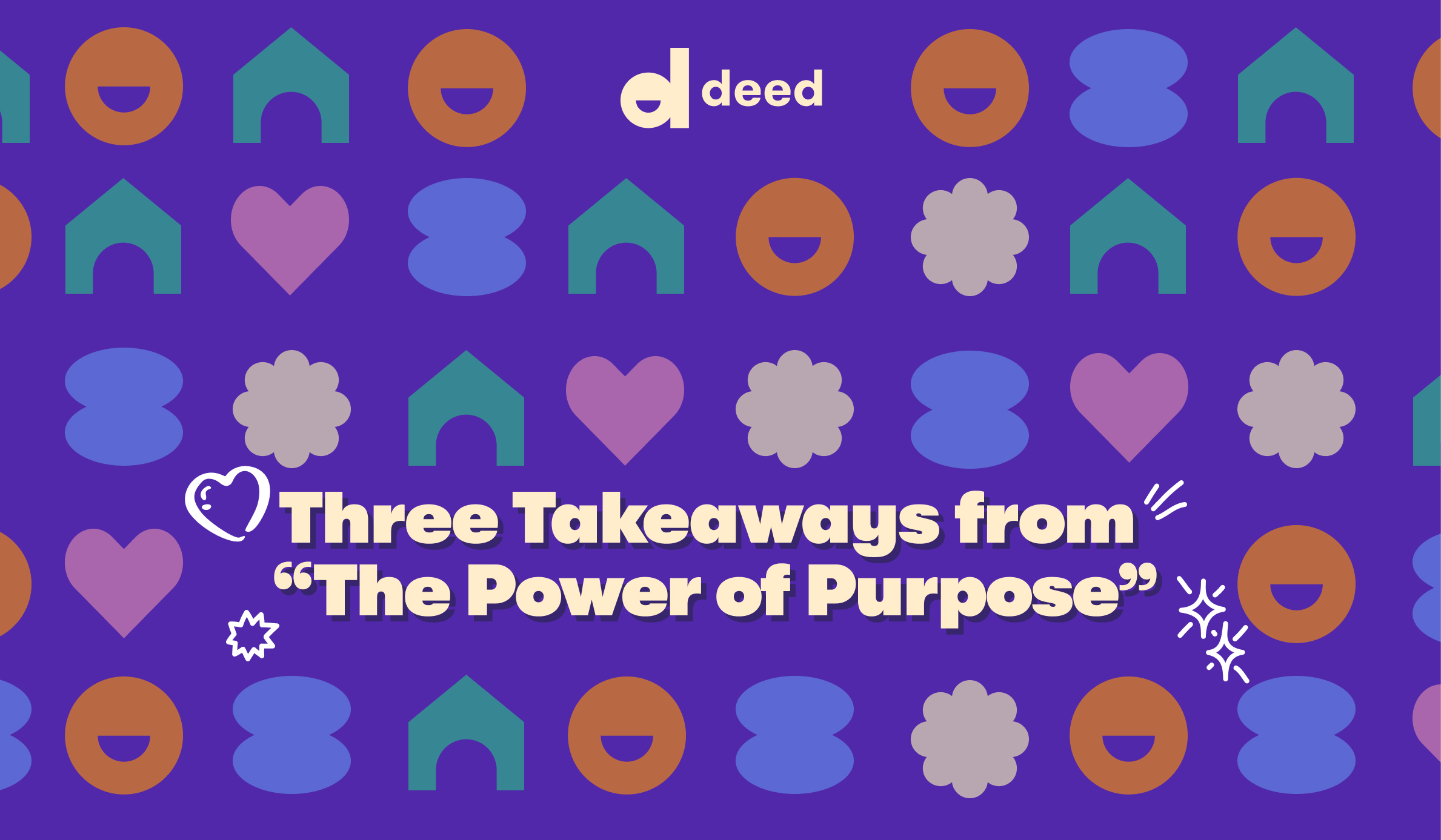Three Takeaways from “The Power of Purpose”
On July 11, our VP of Partner Success Olivia Boger joined Welcome’s Head of Marketing Jena Andres for what proved a rich and searching conversation on modern approaches to social impact, in a webinar titled “The Power of Purpose: Retaining Employees Through Purpose-Led Communities.” (ICYMI, here’s a recording.)
Here are three top-line takeaways from the webinar.
- Getting your impact program off the ground can be as exciting as it is intimidating—if you focus on your superpower.
Whether your organization is still considering whether to dedicate time and resources to social impact, or your team wants to more closely align your current program with your mission, it’s crucial to identify your superpower.
Ask yourself:
- What is the one most crucial problem we are trying to solve?
- What do we do better or differently than anybody else, and how can we harness that superpower for good?
- How can our executives, employees, ERGs, potential or current nonprofit partners, and local communities work together in a way that accomplishes our mission?
If you are in finance, for example, focusing on improving financial literacy would make sense from all perspectives, including business and brand, communications and marketing, and, most importantly, authentically connecting your employees to communities in need.
- Evergreen and reactive impact tracks are crucial.
But the most impactful ESG & CSR programs don’t focus on their superpower to the exclusion of all else. It’s crucial to give your employees room to support the causes they care most about, both in the heat of the moment and over the long-term.
You can think of that core focus as your “evergreen” programming, and all others as your “reactive” programming.
A financial institution will devote considerable time and effort to improving financial literacy, from basic budgeting to retirement planning, in their community; but that doesn’t mean that same institution’s employees won’t also want to volunteer to assemble care packages for families who’ve lost their homes to flood, or donate to refugee aid networks abroad.
We’re seeing more companies speak to both tracks by offering 2:1 donation matching—or “doubling down”—on their core cause areas, and 1:1 matching for all others. This ensures that everyone’s voice is heard, and the company’s mission is well served.
- We need to incorporate ESG as early and often as possible.
ESG has never been a more important consideration for companies of all sizes, considering how drastically work has changed (with remote, hybrid, and other options as the new normal), and there are two main reasons why.
First, impact. From giving to volunteering and skill-sharing, we can have a much greater impact when we work together. More brains in the room means more ideas floating around, and more ideas means an ever-expanding scope of what good deeds are achievable and meaningful to our local community and the community writ large.
Second, employee engagement. While everybody cares about doing good regardless of age, Millennials and Gen Z are increasingly looking at ESG/CSR efforts when deciding where they want to work. To put your best foot forward with retention and recruitment, and to help your employees feel more organically fulfilled through their work, it’s important for your Human Resources and People teams to build in information about your company’s social impact—even as early as the interview process. (Which can be as simple as asking: What cause is most important to you?)
CONCLUSION
Our Olivia Boger, Deed’s VP of Partner Success, and Jena Andres, Head of Marketing at Welcome, shared an incredible amount of good advice and powerful insights during this webinar, and we’d like to thank them both for their thought leadership.
As you reflect on these three key takeaways—focus on your superpower, sustain both evergreen and reactive impact tracks, & incorporate ESG early and often—as well as the rest of this vibrant discussion, make the time to consider this fundamental question once again: How can my company’s superpower be harnessed to do more good?
YOUR NEXT CHALLENGE
At a time when 93 percent of employees say companies should lead with purpose, you need more than product—you need community. Deed has created an inclusive, insightful, and useful impact tool to artfully bring people together. If you’re up for the challenge to prove that we can and will do well in business by doing good for the world, then now is the time to book a demo.


